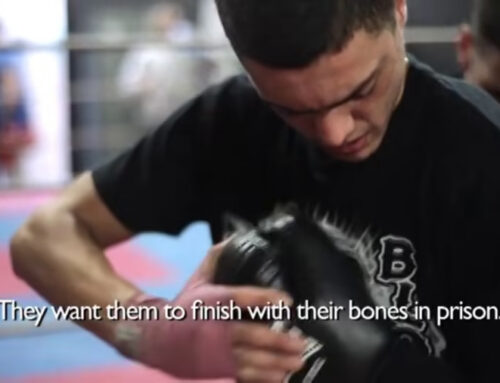Category
Documentary, In Production
Tags
Documentary, Pepi Fandango
About This Project
Genre: Documentary (in Production)
Estimated length: 55′ and 75′
Director: Lucija Stojevic
Producer: Andrés Bartos
Estimated completion: 2021
With the support of: ICEC
Peter Perez, a Viennese Jew, embarks on a journey to Andalusia (Spain) where flamenco song opens up childhood memories from the Rivesaltes concentration camp and makes Peter face and process the trauma of Holocaust survival alongside his Gitano “brothers.”
Photos
Synopsisi
Flamenco song plunges Peter Pérez (known as Pepi) into the dark memories of his childhood. Hunger, rats and misery in the barracks of Rivesaltes resurface and haunt him.
Today, Pepi, a Sephardic Jewish man in his 80s, lives a solitary, routined life in Vienna. The rising popularity of the far right party casts an oppressive shadow over the bustling city, adding to his discomfort with his past. At lunch, Pepi’s friend Alfred, seeing his consternation, brings up the idea of a road trip. They will drive to the Spanish village of Paterna, the cradle of flamenco song, to face the music that troubles Pepi yet leaves him yearning to fill the void left by his lost childhood.
Pepi, a bookish man, and Alfred, who looks like an aging Hell’s Angel, hit the road. They head on their Quixotic mission, armed with their wry Viennese sense of humor. They drive across Europe, and on the way, the landscape, sounds and music trigger fragments of Pepi’s memories. He shared the barracks in the concentration camp at Rivesaltes with children escaping the Spanish Civil War: Spanish Republicans and Gitanos (Spanish Roma). The children would sing fandangos (a flamenco style) to communicate with their parents on the other side of the separation wall. The link between the trauma and the music has tormented Pepi throughout his life. He can’t shake it loose.
Pepi and Alfred eventually reach the sleepy village of Paterna, in the south of Spain, where time has seemingly stopped. The village is preparing for the yearly fiesta. Flamenco singer Rufino embraces Pepi like a long lost brother, comforting Pepi with his raspy voice. As the village transforms in the run up to the fiesta, so does Pepi’s relationship to flamenco, culminating in a moment where he realizes that it’s not the music he’s afraid of but rather the surfacing of new memories.
This pushes Pepi and Alfred to drive to Rivesaltes (France) to face Pepi’s ghosts head on. But all Pepi encounters there are ruins which don’t match the images from his childhood in his mind. He gets angry at the absurdity of this place. He gets angry at the history which allowed it to exist in the first place. And then he gets angry at the present which is forgetting and repeating the same mistakes. Drained and exhausted, Pepi crumbles emotionally, and Alfred picks him up the only way he can – with his music.
The two old men head home to Vienna. The journey across the old continent hasn’t released Pepi from the ghosts of his past, but the friendships he made along the way have lightened his load.
Pepi Fandango is a trip through music and memory; a tender, deeply human, and at times comical emotional journey about trauma and friendship and the importance of fighting for life.
Crew
Director/Producer: Lucija Stojevic
Producer: Andrés Bartos
Director of Photography: Samuel Navarrete

